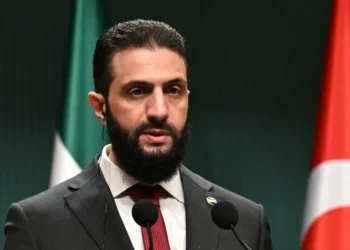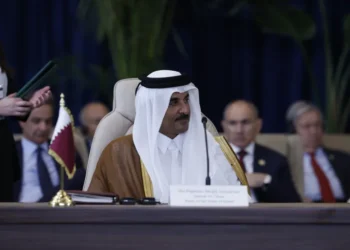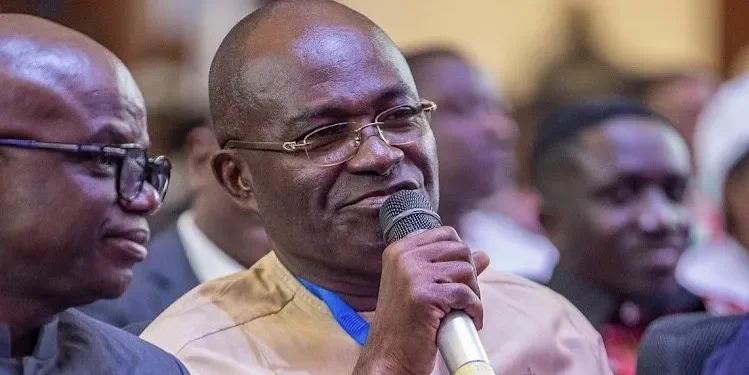India has bemoaned the Trump administration’s move to implement a new $100,000 annual fee on H-1B worker visas in the United States, saying that it is likely to have humanitarian consequences.
In a statement, India’s foreign ministry warned of “potential disruptions for families” affected by the policy. It said that New Delhi hopes the disruptions can be “addressed suitably” by the authorities in the US, adding that the full implications of the policy are being studied by the government.
India was the largest beneficiary of H-1B visas last year, accounting for 71 percent of approved beneficiaries. H-1B visas allow companies to sponsor foreign workers with specialised skills – such as scientists, engineers, and computer programmers – to work in the US, initially for three years, but extendable to six years.
The remarks came a day after President Donald Trump signed an executive action on Friday, September 19, 2025, to impose a $100,000 application fee for H-1B visas — in an effort to curb what his administration says is overuse of the program. “We need great workers, and this pretty much ensures that that’s what’s going to happen,” Trump said.
He made the remark from the Oval Office, where officials detailed how the measure would incentivize companies to employ American workers while still providing a pathway to hire highly skilled foreign workers in specialized fields.
The proclamation will restrict entry under the program unless accompanied by the payment.
The new fee marks the Trump administration’s most high-profile attempt to overhaul the country’s temporary employment visa system. Since taking office in January, he has launched a broad crackdown on immigration, including efforts to limit certain forms of undocumented immigration.
Earlier on today, India’s leading trade body Nasscom said the one-day timeline for implementing the H-1B visa fee was a matter of “concern.”
Nasscom, representing India’s $283bn IT and business process outsourcing industry, said that the policy’s abrupt rollout would affect Indian nationals and disrupt continuity of ongoing onshore projects for the country’s technology services firms.
Nasscom said in a statement, “A one-day deadline creates considerable uncertainty for businesses, professionals, and students across the world,” a day after US President Donald Trump announced the fee, which comes into force from Sunday.
The new H-1B measure, which will likely face legal challenges, was announced alongside the introduction of a $1m “gold card” US residency programme.
Nasscom asserted that the new policy could have “ripple effects” on the US innovation ecosystem and global job markets, pointing out that for companies, “additional cost will require adjustments.”
Nasscom added that policy changes of this scale were best “introduced with adequate transition periods, allowing organisations and individuals to plan effectively and minimize disruption.”
US officials on Friday said that the change to the H-1B programme would ensure that companies would only sponsor workers with the most rarefied skill sets.
However, such a prohibitive fee will likely vastly transform the H-1B system, which was created in 1990 and awards 85,000 visas per year on a lottery system.
Supporters of the H-1B programme say it brings the best and brightest to work in the US, creating an edge against foreign competitors. On the other hand, critics have long charged that companies have abused the programme, using it to pay lower wages and to impose fewer labour protections.
H1-B Visa Fee Hike To Force Firms To Move Work Overseas
Some analysts suggested the fee may force companies to move some high-value work overseas, hampering the US’s position in the high-stakes artificial intelligence race with China, which at 11.7 percent of total H-1B visas ranks a distant second, according to government data.
Following the White House’s announcement, major US tech firms Microsoft, JPMorgan and Amazon advised employees holding H-1B visas to remain in the US, according to internal emails reviewed by a news agency.
Tech entrepreneurs, including Trump’s former ally Elon Musk, have warned against targeting H-1B visas, saying that the US does not have enough homegrown talent to fill important tech sector job vacancies. However, Commerce Secretary Howard Lutnick said, “All the big companies are on board.”
READ ALSO: We Must Go After the Big Men Behind Galamsey – Expert Demands Tough Action






















